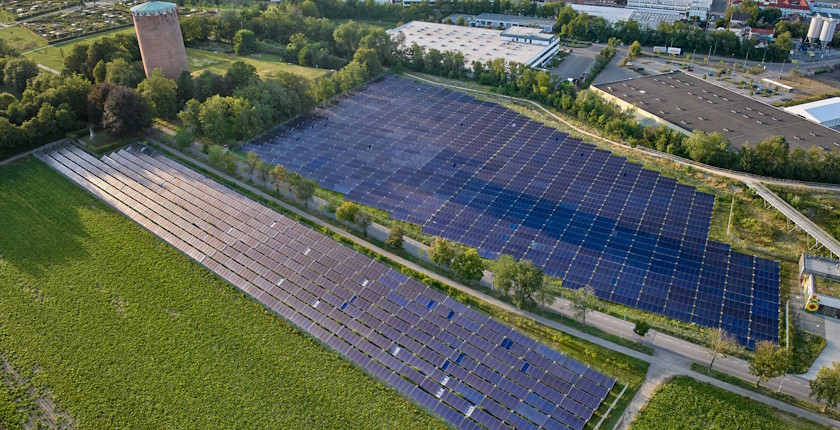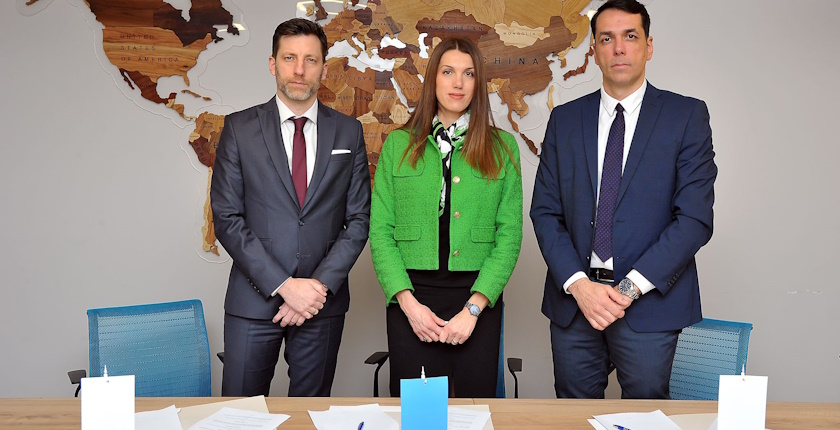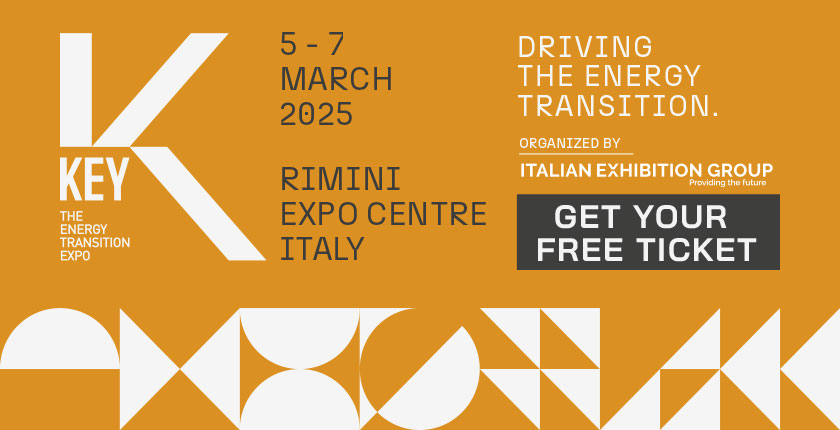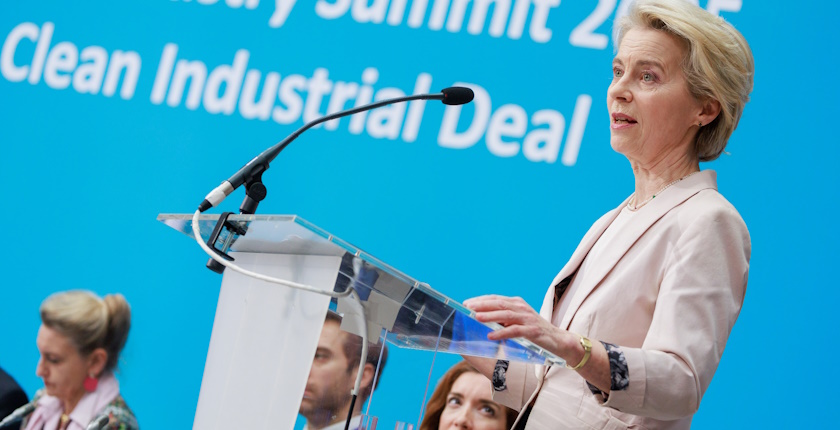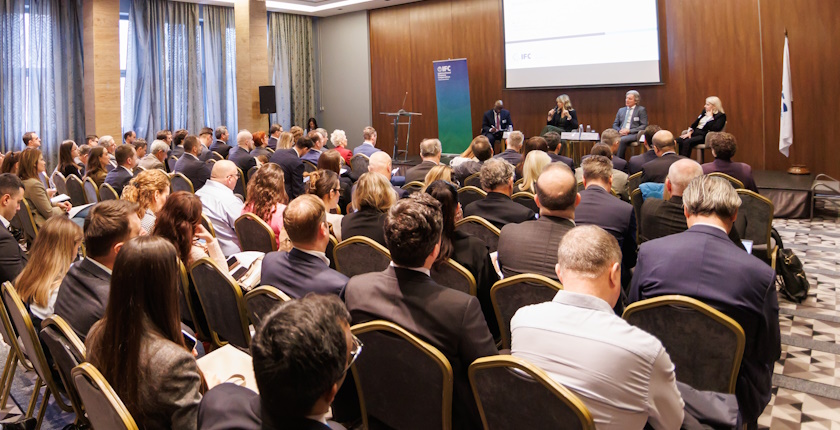
IFC is building Western Balkans Green Growth Alliance
The International Finance Corporation is spearheading the establishment of the Western Balkans Green Growth Alliance. It aims to build knowledge and capacity for decarbonization and sustainability in manufacturing and industrial production, tourism, and agricuture and related services. The other goal is providing access to financial instruments that enable circular business models and sustainable practices, especially to steel and cement and other hard-to-abate sectors.
At the launch event for the Western Balkans Green Growth Alliance in Belgrade, the International Finance Corporation (IFC) gathered perspective partners and beneficiaries of the future program’s offerings. Top managers from cement, steel and other industries that are hard to decarbonize revealed they are working on introducing alternative raw materials and fuels and projects for solar power for self-consumption.
Representatives of producers, commercial lenders and international financial institutions agree that policy adjustment is one of the necessary elements to facilitate the energy transition in the region. In addition, they expressed the belief that the green transition in Europe and the Western Balkans would continue along the current trajectory despite indications that it would be revised.
Rocha: IFC to enable tailored, transaction-based advisory services
The initiative envisages setting up a community interested in driving sustainability, said Regional Director for Europe in IFC Ines Rocha. “By embracing solutions like sustainable energy, innovative processes, material efficiencies, circular business models, the Western Balkans can unlock significant potential, strengthen international competitiveness and build a sustainable future. Not just for the businesses, but also for the communities,” she pointed out in her opening remarks.
The event was organized to identify specific requirements that would be met with suitable support measures. They would accelerate decarbonization and the alignment with the European Union’s regulations, while leading to growth opportunities.
“We hope to open the door for companies to tap into financial instruments that enable circular business models and sustainable practices,” the International Finance Corporation’s European chief said at the conference in Serbia’s capital city
One goal is to build knowledge and capacity in three target sectors, Rocha explained. The key aspect is manufacturing including hard-to-abate industries. The other two are tourism, and agribusiness and services. The idea is for the alliance to equip companies with tools, guidance and resources, she underscored.
The second objective is to provide access to financing. “We believe that through tailored and transaction-based advisory services, we can work directly with businesses to address their challenges, but also the ambitions,” Rocha said.
Many industries that are hard to abate, particularly steel and cement, face significant reinvestment needs and a long lifespan for productive assets, often ranging from 20 to 30 years, she asserted. “In the IFC we hope to open the door for companies to tap into financial instruments that enable circular business models and sustainable practices,” the official stressed.
Reducing CO2 emissions bolsters potential for exports to EU
Ambassador of Austria in Serbia Christian Ebner said sustainability and the effects of climate change are more relevant than ever. He added his country registered its warmest year in 2024 since measurements began 257 years ago.
“Climate change is one of the greatest systemic threats to the economy and business profitability worldwide, and the more vulnerable parts of our societies, of course, suffer the most from the effects of climate change,” in the envoy’s words. He noted that the green transition is challenging for businesses and governments, especially in a globalized economy.
The green transition is challenging for businesses and governments, especially in a globalized economy, Ambassador Ebner told the participants at the event
According to a survey, two thirds of international companies view the Balkans as a promising region for green investment, Ebner said. Reducing carbon dioxide emissions brings huge potential for increasing exports to the EU, he added in a speech at the start of the event organized by IFC.
“Austria is strongly convinced that in order to reach our common targets under the Paris Agreement, it is a fundamental prerequisite to create the right investment climate. First, by ensuring a regulatory environment which is conducive for profitable green investments. Second, by fostering the right expertise of financial institutions and businesses to prepare them to finance and implement projects which at the same time increase competitiveness and profitability. And third, by offering opportunities to ensure that the transition to low-carbon economy is managed in a sustainable manner and taking into account vulnerable parts of our society,” Ebner stated.
Construction waste is resource for low-carbon building materials
Lacking a policy and regulatory reform to drive decarbonization, so far there have only been isolated efforts by companies that belong to international groups, as they have internal CO2 targets, said General Manager of Titan Serbia Miroslav Gligorijević. The firm’s plant in Kosjerić in the country’s west is part of Titan Cement Group.
One opportunity completely missing in Serbia is the utilization of construction waste, now only beginning, Gligorijević stressed. In cooperation with authorities and stakeholders, it could enable the production of low-carbon materials in the sector, he said. As another major obstacle, the executive pointed to the ban on importing fuel produced from waste, arguing that domestic sources aren’t sufficient.
Even without regulatory obligations, sustainability makes economic sense
The Development Bank of Austria (OeEB) is eager to participate in the Western Balkans Green Growth Alliance. “Even if some sustainability investments are not required on a regulatory side, companies realize more and more that it also makes economic sense. And therefore this is something companies more and more strive to do,” its Managing Director and Head of Investment Finance Clemens Stadler said at the conference.
Businesses need to be patient as results will come in the medium and long term and development banks are there to support them, he underscored. Stadler said OeEB is trying to be active only if commercial banks cannot alone provide the structural elements of financing for a company.
The International Finance Corporation is spearheading the establishment of the Western Balkans Green Growth Alliance. It aims to build knowledge and capacity for decarbonization and sustainability in manufacturing and industrial production, tourism, and agricuture and related services. The other goal is providing access to financial instruments that enable circular business models and sustainable practices, especially to steel and cement and other hard-to-abate sectors.
At the launch event for the Western Balkans Green Growth Alliance in Belgrade, the International Finance Corporation (IFC) gathered perspective partners and beneficiaries of the future program’s offerings. Top managers from cement, steel and other industries that are hard to decarbonize revealed they are working on introducing alternative raw materials and fuels and projects for solar power for self-consumption.
Representatives of producers, commercial lenders and international financial institutions agree that policy adjustment is one of the necessary elements to facilitate the energy transition in the region. In addition, they expressed the belief that the green transition in Europe and the Western Balkans would continue along the current trajectory despite indications that it would be revised.
Rocha: IFC to enable tailored, transaction-based advisory services
The initiative envisages setting up a community interested in driving sustainability, said Regional Director for Europe in IFC Ines Rocha. “By embracing solutions like sustainable energy, innovative processes, material efficiencies, circular business models, the Western Balkans can unlock significant potential, strengthen international competitiveness and build a sustainable future. Not just for the businesses, but also for the communities,” she pointed out in her opening remarks.
The event was organized to identify specific requirements that would be met with suitable support measures. They would accelerate decarbonization and the alignment with the European Union’s regulations, while leading to growth opportunities.
“We hope to open the door for companies to tap into financial instruments that enable circular business models and sustainable practices,” the International Finance Corporation’s European chief said at the conference in Serbia’s capital city
One goal is to build knowledge and capacity in three target sectors, Rocha explained. The key aspect is manufacturing including hard-to-abate industries. The other two are tourism, and agribusiness and services. The idea is for the alliance to equip companies with tools, guidance and resources, she underscored.
The second objective is to provide access to financing. “We believe that through tailored and transaction-based advisory services, we can work directly with businesses to address their challenges, but also the ambitions,” Rocha said.
Many industries that are hard to abate, particularly steel and cement, face significant reinvestment needs and a long lifespan for productive assets, often ranging from 20 to 30 years, she asserted. “In the IFC we hope to open the door for companies to tap into financial instruments that enable circular business models and sustainable practices,” the official stressed.
Reducing CO2 emissions bolsters potential for exports to EU
Ambassador of Austria in Serbia Christian Ebner said sustainability and the effects of climate change are more relevant than ever. He added his country registered its warmest year in 2024 since measurements began 257 years ago.
“Climate change is one of the greatest systemic threats to the economy and business profitability worldwide, and the more vulnerable parts of our societies, of course, suffer the most from the effects of climate change,” in the envoy’s words. He noted that the green transition is challenging for businesses and governments, especially in a globalized economy.
The green transition is challenging for businesses and governments, especially in a globalized economy, Ambassador Ebner told the participants at the event
According to a survey, two thirds of international companies view the Balkans as a promising region for green investment, Ebner said. Reducing carbon dioxide emissions brings huge potential for increasing exports to the EU, he added in a speech at the start of the event organized by IFC.
“Austria is strongly convinced that in order to reach our common targets under the Paris Agreement, it is a fundamental prerequisite to create the right investment climate. First, by ensuring a regulatory environment which is conducive for profitable green investments. Second, by fostering the right expertise of financial institutions and businesses to prepare them to finance and implement projects which at the same time increase competitiveness and profitability. And third, by offering opportunities to ensure that the transition to low-carbon economy is managed in a sustainable manner and taking into account vulnerable parts of our society,” Ebner stated.
Construction waste is resource for low-carbon building materials
Lacking a policy and regulatory reform to drive decarbonization, so far there have only been isolated efforts by companies that belong to international groups, as they have internal CO2 targets, said General Manager of Titan Serbia Miroslav Gligorijević. The firm’s plant in Kosjerić in the country’s west is part of Titan Cement Group.
One opportunity completely missing in Serbia is the utilization of construction waste, now only beginning, Gligorijević stressed. In cooperation with authorities and stakeholders, it could enable the production of low-carbon materials in the sector, he said. As another major obstacle, the executive pointed to the ban on importing fuel produced from waste, arguing that domestic sources aren’t sufficient.
Even without regulatory obligations, sustainability makes economic sense
The Development Bank of Austria (OeEB) is eager to participate in the Western Balkans Green Growth Alliance. “Even if some sustainability investments are not required on a regulatory side, companies realize more and more that it also makes economic sense. And therefore this is something companies more and more strive to do,” its Managing Director and Head of Investment Finance Clemens Stadler said at the conference.
Businesses need to be patient as results will come in the medium and long term and development banks are there to support them, he underscored. Stadler said OeEB is trying to be active only if commercial banks cannot alone provide the structural elements of financing for a company.

